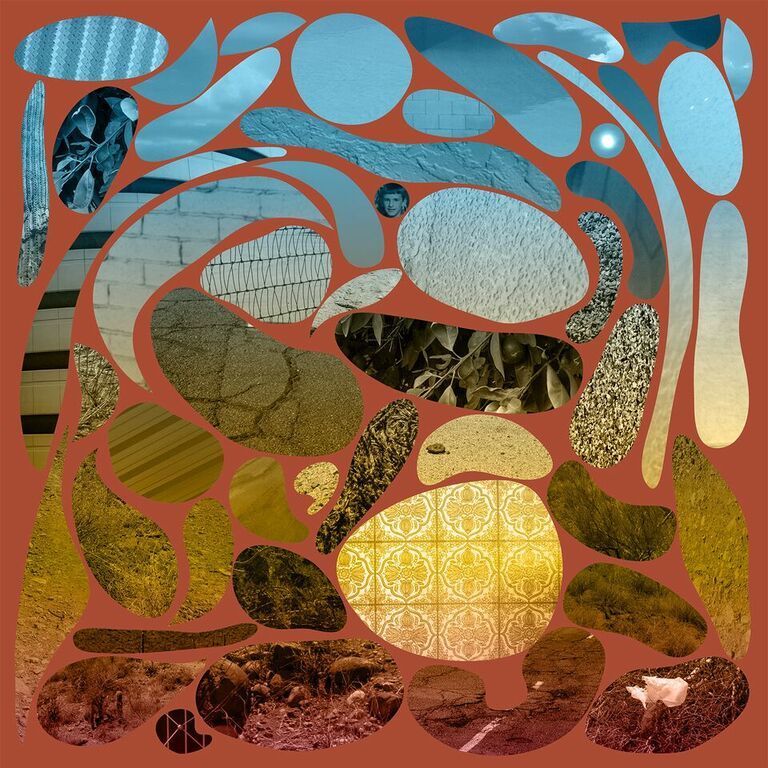Pedro the Lion rises from the ashes with Phoenix, the critically acclaimed indie rock outfit’s first release in over a decade. Formed in 1995 by singer/songwriter and main creative force David Bazan, the band released four full lengths and three EPs before being dissolved by Bazan in 2006.
Set for release on January 18 via Polyvinyl Records, the aptly named Phoenix represents a rebirth for Bazan, who hasn’t released an album under the Pedro the Lion moniker for 15 years. But don’t call it a comeback; he’s been releasing albums under his own name since 2007.
Though successful as a solo artist, he grew to miss performing in a group and subsequently reformed Pedro the Lion in 2017.
“I didn’t realize what calling my music Pedro the Lion would mean to me, but it’s reconnected me to parts of myself and my history (both sonic and personal) that I had lost touch with,” he said in a statement released on the Pedro the Lion website. “This reawakening is making the process so enjoyable, and I’m grateful for the chance to do this again.”
This reawakening is enjoyable for the listener as well, to say the least. Phoenix is one of the most sonically powerful records Pedro the Lion has ever released. Listening to the album back to back with older Pedro albums, it’s obvious that Bazan’s musical abilities have expanded since 2004’s Achilles Heel. Where past Pedro the Lion albums have fallen flat musically, Phoenix is dynamic, with rich instrumentation, beautiful melodies, and powerful vocals.
Lyrically, Phoenix has similar themes as past Pedro songs: isolation, religion, internal conflict. But as a whole, this album reaches further: unintentionally, it becomes another concept album, an approach Bazan left behind with 2002’s Control.
This time, instead of telling the story of an unfaithful businessman, Bazan tells his own story, a narrative about the loneliness and longing of growing up in churchgoing suburbia and the relation it has to his adult self. But there is something more here than just another guy telling his origin story. Through his classic, first person narrative, he often juxtaposes childhood tales with reflections from his current self, ruminating on how those experiences shaped the Bazan of today, subsequently invoking similar emotions in the listeners about their own childhoods.
In “Yellow Bike,” he talks about the exhilarating energy and unbridled isolation of learning how to ride a bike, connecting it to the same feelings experienced while touring the United States as an adult. Pounding drums are introduced as Bazan sings of his thumping heart, a perfect example of his perfectly timed lyrics and attention to detail.
With “Model Homes,” Bazan recounts the loneliness of growing up in Christian suburbia. “Sunday afternoon felt like a tomb,” he sings, describing his desire to look at air conditioned model homes instead of isolating himself in his room after church. Though a seemingly simple concept, “Model Homes” exemplifies the longing for something more felt by many who grew up in a suburban home. “I want to not be lonely,” he belts out, as child Bazan contemplates his potential adult life.
While past Pedro the Lion lyrics have had an overarching religious theme, faith takes a backseat on Phoenix. Growing up the son of a pastor, Bazan is known for writing feverous lyrics discussing his faith and his complicated relationship with it. With this album, instead of making it the forefront of the album, Bazan is using religion simply as a backdrop of his childhood without letting the opinion of adult Bazan taint the relationship it had to his upbringing. Even through his best intentions, the line “I tried eternity and a couple other drugs/such a romantic place to hide from” from the upbeat “Clean Up” is still a cutting reminder of his current opinion on Christianity.
Bazan’s innate attention to detail is what makes Phoenix so phenomenal. The picture Bazan paints of his childhood includes seemingly random moments that end up becoming symbolic to the larger whole. The yellow bike, the model homes, cleaning up, at first they seem arbitrary, but these concepts are threaded throughout the record, showing the importance of their symbolism.
The yellow bike reappears in “Circle K”; this time it is being used to ride to the gas station to blow all his money on sweets. The cleansing process first discussed in “Clean Up” is revisited in a depressing fashion in the emotionally heavy “Black Canyon,” when Bazan describes a gruesome scene in which his paramedic uncle had to call for cleanup after a man committed suicide by jumping in front of a semi.
On album closer “Leaving the Valley,” Bazan intones “We got our model home/But what the Lord gives, he can take away,” alluding back to “Model Homes.” This time, instead of describing the longing of wanting something different, Bazan describes the unsure feelings behind what happens when you actually get what you want-getting out of suburbia. These moments, however fleeting they may be, are what make Bazan who he is today.
Like the mystical creature, Phoenix represents a slow burning regeneration for Pedro the Lion. Through an 11 year hiatus, David Bazan has managed to make the best Pedro the Lion record to date. With Phoenix, Pedro the Lion is reborn even more powerful than before.
This review was originally written for New Noise Magazine.
Pedro the Lion rises from the ashes with Phoenix, the critically acclaimed indie rock outfit’s first release in over a decade. Formed in 1995 by singer/songwriter and main creative force David Bazan, the band released four full lengths and three EPs before being dissolved by Bazan in 2006.
Set for release on January 18 via Polyvinyl Records, the aptly named Phoenix represents a rebirth for Bazan, who hasn’t released an album under the Pedro the Lion moniker for 15 years. But don’t call it a comeback; he’s been releasing albums under his own name since 2007.
Though successful as a solo artist, he grew to miss performing in a group and subsequently reformed Pedro the Lion in 2017.
“I didn’t realize what calling my music Pedro the Lion would mean to me, but it’s reconnected me to parts of myself and my history (both sonic and personal) that I had lost touch with,” he said in a statement released on the Pedro the Lion website. “This reawakening is making the process so enjoyable, and I’m grateful for the chance to do this again.”
This reawakening is enjoyable for the listener as well, to say the least. Phoenix is one of the most sonically powerful records Pedro the Lion has ever released. Listening to the album back to back with older Pedro albums, it’s obvious that Bazan’s musical abilities have expanded since 2004’s Achilles Heel. Where past Pedro the Lion albums have fallen flat musically, Phoenix is dynamic, with rich instrumentation, beautiful melodies, and powerful vocals.
Lyrically, Phoenix has similar themes as past Pedro songs: isolation, religion, internal conflict. But as a whole, this album reaches further: unintentionally, it becomes another concept album, an approach Bazan left behind with 2002’s Control.
This time, instead of telling the story of an unfaithful businessman, Bazan tells his own story, a narrative about the loneliness and longing of growing up in churchgoing suburbia and the relation it has to his adult self. But there is something more here than just another guy telling his origin story. Through his classic, first person narrative, he often juxtaposes childhood tales with reflections from his current self, ruminating on how those experiences shaped the Bazan of today, subsequently invoking similar emotions in the listeners about their own childhoods.
In “Yellow Bike,” he talks about the exhilarating energy and unbridled isolation of learning how to ride a bike, connecting it to the same feelings experienced while touring the United States as an adult. Pounding drums are introduced as Bazan sings of his thumping heart, a perfect example of his perfectly timed lyrics and attention to detail.
With “Model Homes,” Bazan recounts the loneliness of growing up in Christian suburbia. “Sunday afternoon felt like a tomb,” he sings, describing his desire to look at air conditioned model homes instead of isolating himself in his room after church. Though a seemingly simple concept, “Model Homes” exemplifies the longing for something more felt by many who grew up in a suburban home. “I want to not be lonely,” he belts out, as child Bazan contemplates his potential adult life.
While past Pedro the Lion lyrics have had an overarching religious theme, faith takes a backseat on Phoenix. Growing up the son of a pastor, Bazan is known for writing feverous lyrics discussing his faith and his complicated relationship with it. With this album, instead of making it the forefront of the album, Bazan is using religion simply as a backdrop of his childhood without letting the opinion of adult Bazan taint the relationship it had to his upbringing. Even through his best intentions, the line “I tried eternity and a couple other drugs/such a romantic place to hide from” from the upbeat “Clean Up” is still a cutting reminder of his current opinion on Christianity.
Bazan’s innate attention to detail is what makes Phoenix so phenomenal. The picture Bazan paints of his childhood includes seemingly random moments that end up becoming symbolic to the larger whole. The yellow bike, the model homes, cleaning up, at first they seem arbitrary, but these concepts are threaded throughout the record, showing the importance of their symbolism.
The yellow bike reappears in “Circle K”; this time it is being used to ride to the gas station to blow all his money on sweets. The cleansing process first discussed in “Clean Up” is revisited in a depressing fashion in the emotionally heavy “Black Canyon,” when Bazan describes a gruesome scene in which his paramedic uncle had to call for cleanup after a man committed suicide by jumping in front of a semi.
On album closer “Leaving the Valley,” Bazan intones “We got our model home/But what the Lord gives, he can take away,” alluding back to “Model Homes.” This time, instead of describing the longing of wanting something different, Bazan describes the unsure feelings behind what happens when you actually get what you want-getting out of suburbia. These moments, however fleeting they may be, are what make Bazan who he is today.
Like the mystical creature, Phoenix represents a slow burning regeneration for Pedro the Lion. Through an 11 year hiatus, David Bazan has managed to make the best Pedro the Lion record to date. With Phoenix, Pedro the Lion is reborn even more powerful than before.
This review was originally written for New Noise Magazine.

